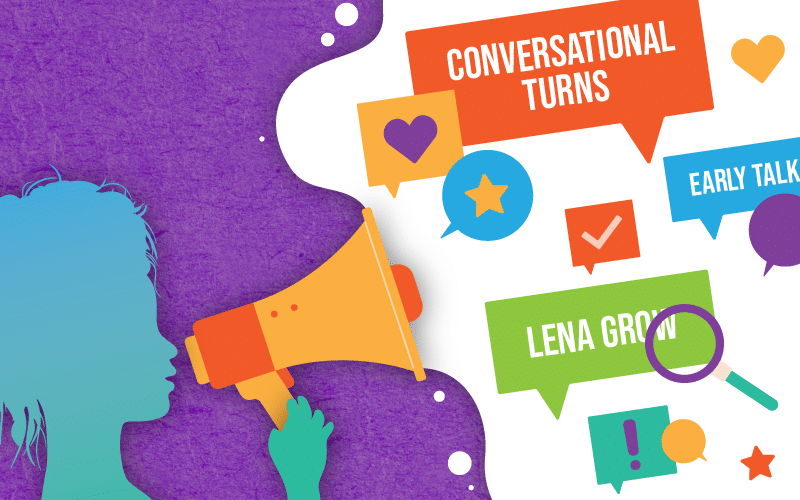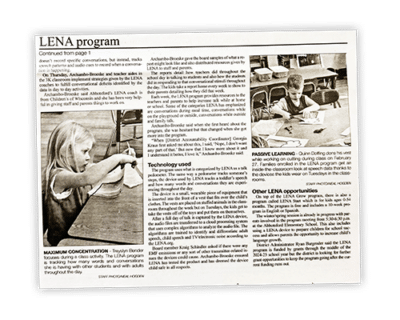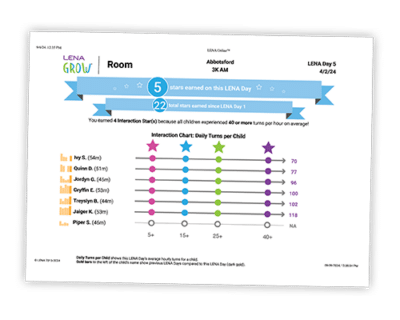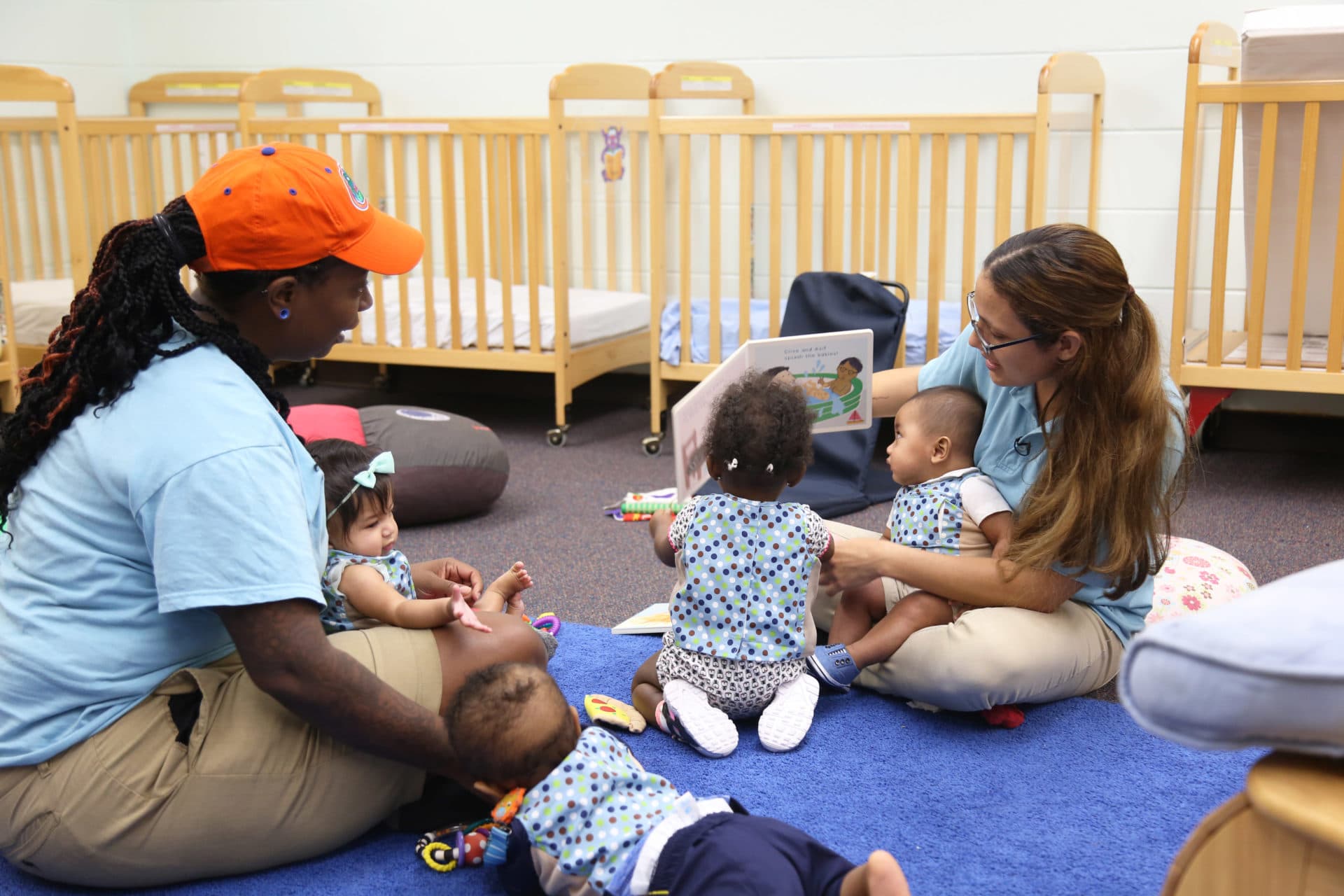After 25 years of teaching kindergarten in Abbotsford, Wisc., Teresa Archambo-Broeske thought she was ready to close the book on her classroom career. But life had other plans. Instead of retiring, Teresa found herself back in Abbotsford County Schools as a preschool teacher and embarking on an unexpected journey of professional growth.
“I retired after 25 years of teaching, mostly in kindergarten,” Teresa explains. “And I never thought I would like another age level better than kindergarten.”
Yet here she was, running a pre-K classroom part-time and loving every minute of it. The rural central Wisconsin community she’d called home for most of her life was now benefiting from her wealth of experience in early childhood education.
Teresa’s enthusiasm for her new role is obvious. “I just love these three-year-olds even more,” she admits. Yet, even with her wealth of experience and passion, Teresa was about to encounter a challenge that would transform her approach to teaching and remind her why she fell in love with early childhood education in the first place. Through LENA partner Childcaring, Teresa was offered a chance to participate in the LENA Grow program. It’s an opportunity that would challenge her assumptions and reignite her passion for early childhood education.
LENA Grow is an innovative professional development program designed to enhance early childhood education through data-driven insights. Using a combination of wearable technology and targeted coaching, LENA Grow helps educators increase interactive talk in their classrooms. The program focuses on measuring and improving conversational turns between teachers and children, a key indicator of language environment quality that’s closely linked to children’s social, emotional, and cognitive development.
A Veteran Teacher’s Skepticism
With over two decades of kindergarten teaching under her belt, Teresa was a seasoned educator, which we know, from research, contributes to more back-and-forth conversations with children. Her transition to teaching three-year-olds had only reinforced her confidence in her abilities. Throughout her career, Teresa had weathered countless changes in curriculum, teaching methods, and educational philosophies. She thought she’d seen it all. However, the LENA Grow program was about to defy that viewpoint, proving that even the most experienced teachers can discover new ways to enhance their classroom’s language environment.
So, when Teresa’s school administrator approached her about participating in a new professional development program called LENA Grow, her initial reaction was less than enthusiastic. The program promised to enhance early language development in the classroom, but Teresa was skeptical. Two thoughts nagged at her:
- Privacy concerns: “When they first asked me to do LENA, I said, ‘Well, I don’t know if I feel comfortable with that,'” Teresa recalls. Her initial hesitation stemmed from concerns about the technology that powers the program. A ‘talk pedometer’? What’s that?! Her uncertainty reflects a common reaction many educators have when first introduced to classroom recording technology. However, as she learned more about how LENA Grow actually works, her perspective began to change.
- Value of the program: Teresa also admitted that she didn’t understand what the LENA Grow program could possibly teach her and her coworkers that they aren’t already doing. “I thought, ‘This is going to be easy,'” she recalls with a chuckle. “We already do this. What could they possibly teach us that we’re not doing already?”
Little did Teresa know that her well-worn assumptions were about to be challenged.
An Unexpected Revelation
As Teresa learned more about the program, her perspective began to shift. She realized that LENA Grow wasn’t about judging her teaching (or her interactions with children during challenging moments), but about providing valuable insights into classroom interactions.
“It was because I didn’t understand the program. I didn’t have enough knowledge on what it was and how it worked,” Teresa explains. “Once I got that information, and that stuff was explained to me, I’m like, okay, all right, we’ll give it a try.”
Teresa learned something important. None of the recorded conversations on LENA devices are ever heard by human ears! Only the number of conversational turns between teachers and children are used in the processing of the LENA device’s data. And that processing is done electronically, not by humans.
This openness to learning marked the beginning of Teresa’s transformation. As she engaged with the weekly coaching sessions and data reports, she began to see LENA Grow not as a challenge to her experience, but as a tool to enhance her teaching. The program was offering her a new lens through which to view her classroom dynamics, one that would ultimately reinvigorate her approach to early childhood education.
Transforming Teaching Practices
As Teresa immersed herself in LENA Grow, she discovered new strategies to enhance early childhood language development in her classroom. The program’s emphasis on increasing conversational turns became a focal point of her teaching approach.
“I wrote [LENA’s 14 Talking Tips] out on sentence strips and I have them hanging all around the classroom,” Teresa explains. Even now that her classroom has completed the program, these visual reminders still help her and her teaching assistant generate questions and conversations with children throughout the day.
A New Lens on Classroom Interactions
The data from LENA Days provided Teresa with unexpected insights. “Oh my gosh, here I think I’m doing such a great job talking with all eight of them. But you know what, this one really missed out, or this one really missed out,” Teresa recounts. This revelation prompted her to pay closer attention to each child’s individual needs and ensure more equitable interaction.
Teresa found herself implementing new strategies to boost language development. “We would, every once in a while, have to reteach [something], but it became less and less frequent by the end of the school year, until it was not at all going on,” she notes, referring to the decrease in challenging behaviors as children’s communication skills improved.
Nurturing Social-Emotional Growth
The impact of these changes extended beyond language skills. Teresa observed significant improvements in her children’s social-emotional development. One child, in particular, stood out.
“There was no more hiding underneath the table. There wasn’t the pushing and the hitting,” Teresa recalls. She feels strongly that LENA Grow helped reduce challenging behaviors and empowered her children to express themselves more effectively.
As she watched her students flourish, Teresa realized that LENA Grow was doing more than improving language skills. It was fostering an environment where children felt heard, understood, and capable of expressing their needs and emotions. This holistic approach to early childhood education was reigniting Teresa’s passion for teaching in ways she never anticipated.
Tangible Results in the Classroom and Beyond
Teresa’s experience with LENA Grow was shaping her into a more passionate and informed champion for quality early childhood education. Her classroom transformed during the LENA Grow program.
Yes, the language environment evolved, with children engaging in more frequent and meaningful conversations. But the effects weren’t limited to just talk. Teresa observed significant improvements in her students’ overall development. As a matter of fact, her classroom impact report showed off-the-charts numbers!
In one example, Teresa shared how LENA Grow helped a child who had been struggling with behavior:
“From the time we started, we could tell the difference,” Teresa explained. “It’s really mind-blowing.” She described how a boy who had previously cried constantly throughout the day began to show remarkable changes. Not only did he stop crying, one afternoon, he even waved and said “Bye” — the first time he had spoken in their presence.
She even mentioned how she wished she could do the program again with her next class of littles because experiencing the changes in the children was so rewarding for both teacher and child!
“I’m your biggest cheerleader. I absolutely loved it. And I wish now, looking back, that I hadn’t been so nervous and scared about it, because it was so valuable to me. And I think it was very valuable to our parents when they attended the parenting class and were doing LENA at home with their younger children.”
Sharing Success with the School Board
Teresa’s enthusiasm for LENA Grow has since extended beyond her classroom. She was invited to present her experience to the school board, showcasing the program’s impact on early childhood education.
During her presentation, Teresa brought along visual aids to help illustrate how LENA Grow works. She showed the board members the special vests the children wear and explained how the technology captures language data without recording specific conversations.
Teresa also shared concrete data with the board, displaying photocopies of reports that showed the children’s progress from their initial benchmark to subsequent assessments. This tangible evidence of improvement helped demonstrate the program’s value to key decision-makers in the school district.
As Teresa continues to implement LENA Grow strategies and advocate for the program, she’s contributing to a movement that could reshape how we approach early childhood education, one conversation at a time.








